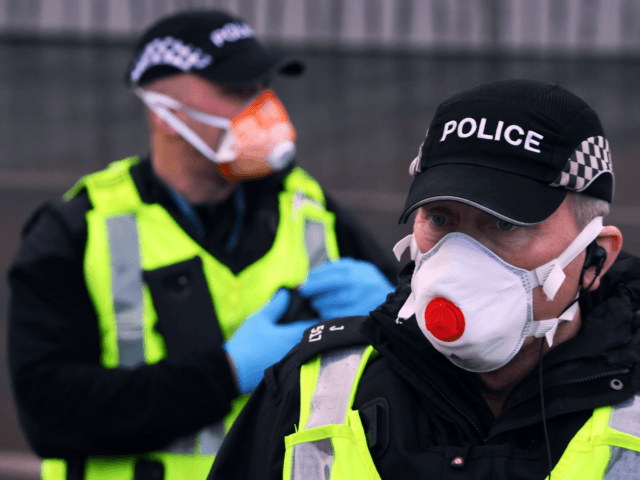The British government is reportedly preparing plans for a two-week “circuit breaker” lockdown before the end of the year amid doomsday predictions from scientific advisors of up to 5,000 deaths per day from the Omicron variant of the Chinese coronavirus.
Leaked lockdown proposals would see England return to the restrictions imposed as the “Step 2” plan enacted after the winter shutdown last year. Under the plans, ministers are said to be considering reimposing a ban on indoor mixing, with exceptions carved out for workplaces, according to The Times of London.
While the plans would not reintroduce forced closures of pubs and restaurants, the hard-hit hospitality industry would once again be forced to limit service to outdoor seating. Families and friends would also be barred from meeting indoors, with gatherings limited to six people, outside.
The proposals stop short of introducing a blanket “stay at home” order and schools and shops are expected to remain free to stay open. Weddings and funerals will still be permitted to be held, but would be limited to 15 to 30 people.
Though the reintroduction of lockdown restrictions are expected to be imposed in the days following Christmas, the imposition of more measures before the winter holiday have reportedly not been ruled out.
The push for another lockdown in England comes amid increasingly dire predictions from the scientific establishment, with computer models from disgraced ‘Professor Lockdown’ Neil Ferguson predicting up to 5,000 daily deaths from the Omicron variant if the country remains relatively free.
Professor Fergusson — who resigned from his government advisory role after it was revealed that he violated his own lockdown diktats in order to meet with his married lover but was later rehired by the Boris Johnson government — was widely credited for the introduction of Communist China-inspired lockdowns throughout the Western world at the outset of the pandemic.
At the beginning of the crisis, the Imperial College epidemiologist predicted that 510,000 deaths in Britain during the first year of the pandemic if the government did not lock down the country. To date, Britain has seen approximately 147,000 deaths attributed to the Wuhan virus.
The latest doomsday models have come under criticism after public health officials from South Africa — the believed origin of the Omicron variant — have reported that the strain of the virus has not resulted in a dramatic increase in deaths.
The government has already been forced to walk back warnings from Health Secretary Sajid Javid on Monday when he said that models estimate that there are currently 200,000 infections occurring every day. The UK Health Security Agency (UKHSA) said on Thursday that this claim was “no longer valid” as a result of people changing their behaviour in response to the new variant.
It is unclear how much political capital Boris Johnson will be willing to spend to impose new restrictions on the British citizenry, as the embattled prime minister is already facing questions over his position as leader following a humiliating election defeat in North Shropshire and nearly 100 MPs from his own party rebelling against him in the last vote on coronavirus restrictions.
The public’s patience for lockdowns has also apparently dried up, with a poll from YouGov conducted for The Times finding that the majority of Britons are now opposed to introducing more lockdown measures.
The survey of 1,714 people between December 14th and 15th, found that 60 per cent were opposed to shutting pubs and restaurants and 65 per cent opposed forcing non-essential shops to shut down. The poll also found that 62 per cent opposed banning indoor meetings of people from other households, and 68 per cent opposed bans on indoor gatherings over Christmas.
Mr Johnson has yet to publicly endorse any return to lockdowns and instead has emphasised the role of the booster jab vaccine programme to combat the Omicron variant, saying that people should be “prudent” and take into account their “budget of risk”.
Follow Kurt Zindulka on Twitter here @KurtZindulka

COMMENTS
Please let us know if you're having issues with commenting.